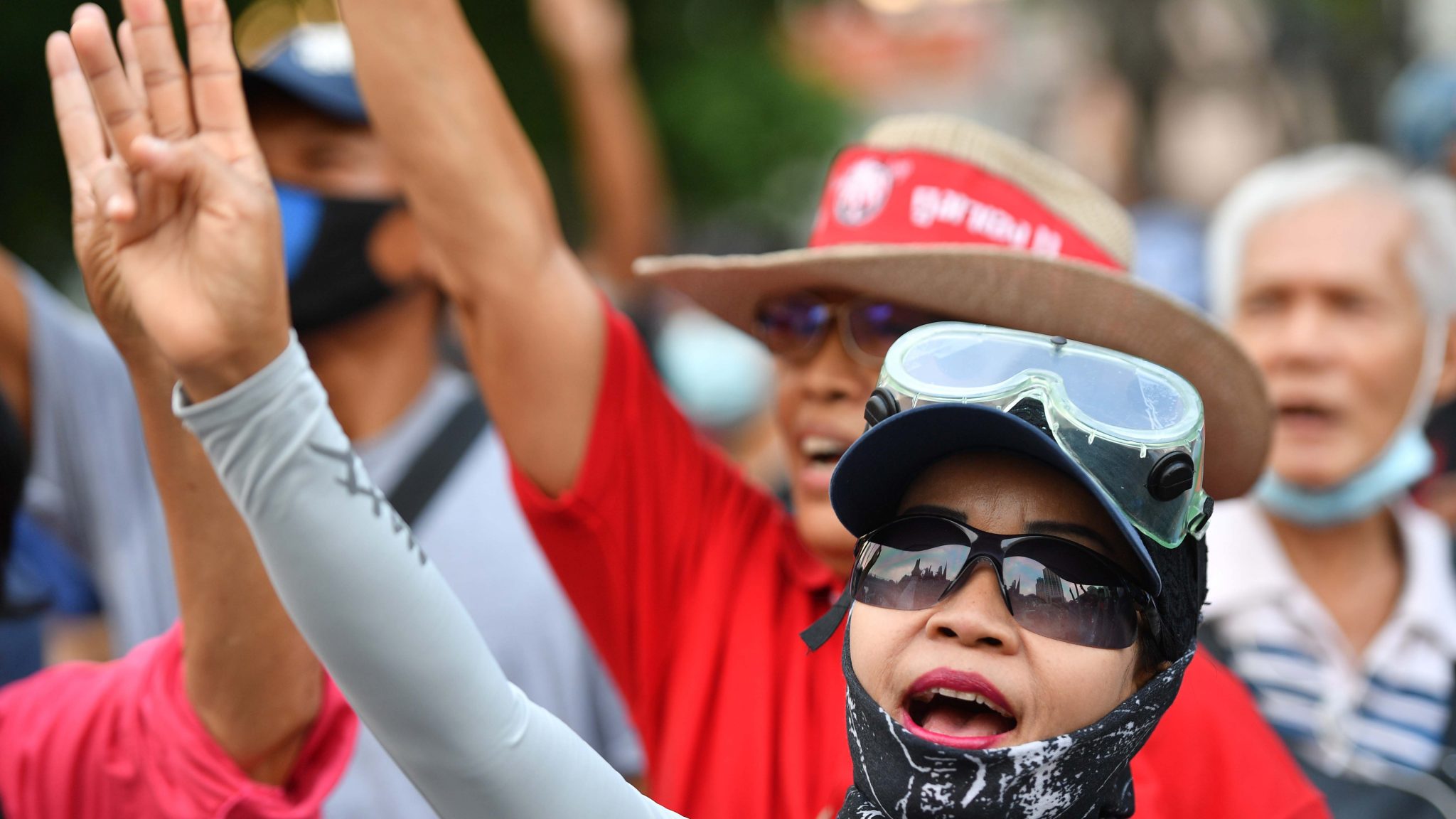Prime Minister Prayut Chan-O-Cha said Thailand needs to bring “illegal protests” under control on Monday as he opened a special parliamentary session to address months of pro-democracy rallies.
Prayut, the former military chief who staged the 2014 coup, has faced increasing pressure in recent weeks from tens of thousands of protesters demanding his resignation.
The student-led rallies are also calling for a rewrite of the military-scripted constitution and an end to alleged government harassment of political opponents, as well as reform of the once-unassailable monarchy.
“Though the people have the freedom to protest based on the constitution, authorities need to control the illegal protests,” said Prayut, who recalled parliament from recess last week.
“We do not want to see clashes or riots in the country,” he said, accusing some protesters of “inappropriate actions”.
While Prayut acknowledged the protesters’ demands in his opening speech, the two-day parliamentary session has not listed them on its agenda.
But parliament will discuss an incident this month when protesters flashed three-finger salutes a symbol of their movement at Queen Suthida’s motorcade.
Such an overt challenge is unprecedented in Thailand, where the royal family is protected under harsh anti-defamation laws and criticism of them is taboo.
“The protesters say it was not in the plan for the Queen to pass that way, but the government says she can go anywhere,” said Tankhun Jittitsara, one of the secretaries of House Speaker Chuan Leekpai.
“No one knows the truth so we’ll talk about that.”
‘Protect the monarchy’
The opposition Pheu Thai party used the parliamentary session to call for Prayut’s resignation, saying it would “solve all problems”.
“You’ve been in power for six-and-a-half years five years under your coup and one-and-a-half years when you gained benefit from an undemocratic constitution,” said party secretary Prasert Jantararuangthong.
“I call for General Prayut to resign as premier, which would be a solution to solve all problems,” he said.
After the royal motorcade incident, the premier imposed emergency measures banning gatherings of more than four, while authorities arrested scores of activists.
Three activists were also charged under a rarely used law banning “violence against the Queen”, which carries a maximum sentence of life in prison.
Prayut revoked the emergency measures a week later when they failed to discourage thousands turning up in “guerrilla” protests across Bangkok.
Some protesters are demanding the abolition of the royal defamation law, a clear accounting of the palace’s finances, and for King Maha Vajiralongkorn to stay out of politics.
Pro-royalist groups have emerged in response to the unprecedented challenges to the monarchy, holding counter-rallies to pronounce their love for the king.
On Monday, dozens of supporters in yellow shirts — the royal colour — gathered outside parliament, telling MPs not to reform the monarchy.
“We do not want the monarchy topic to be discussed in parliament,” said Suwit Thongprasert, a prominent royalist activist.
“We are ready to protect the monarchy.”
A student group has called for anti-government protesters to march to the German embassy on Monday, an apparent reference to the long periods of time the king has spent in Germany.
AFP

